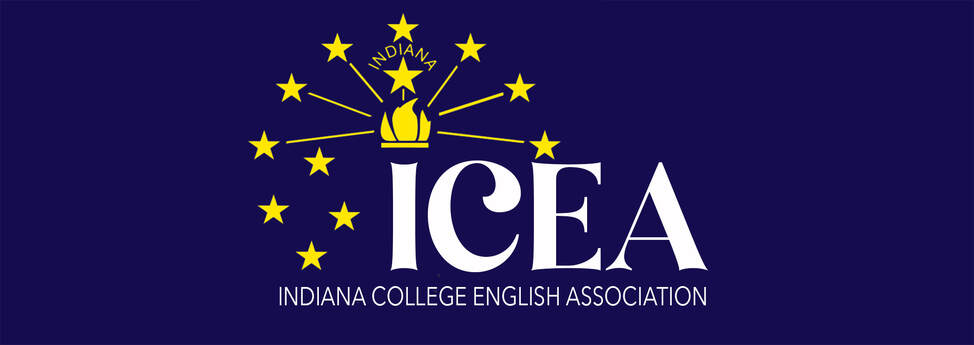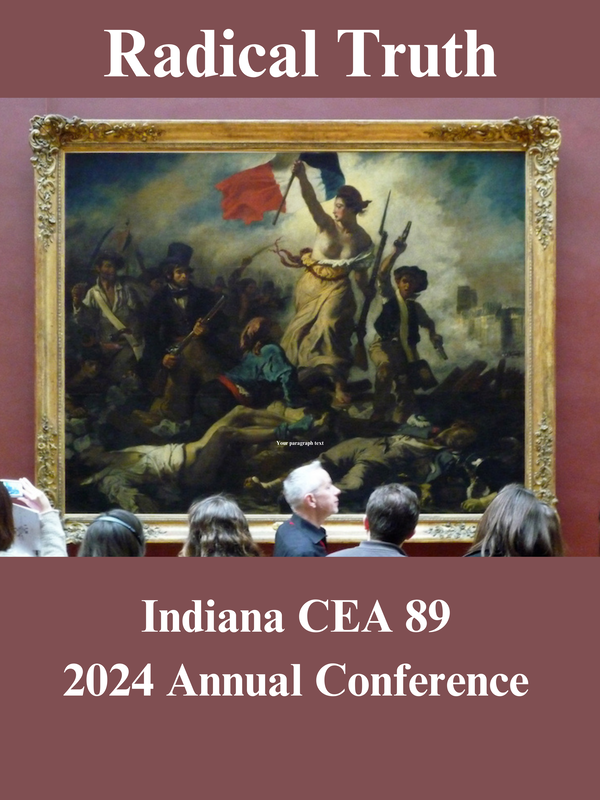The theme for the 89th Annual Conference of the Indiana College English Association is "Radical Truth."
CALL FOR PAPERS:
In 1859, the philosopher John Stuart Mill explained the consequences of stifling dissent in his essay, "On Liberty." Mill wrote:
[T]he peculiar evil of silencing the expression of an opinion is, that it is robbing the human race; posterity as well as the existing generation; those who dissent from the opinion, still more than those who hold it. If the opinion is right, they are deprived of the opportunity of exchanging error for truth: if wrong, they lose, what is almost as great a benefit, the clearer perception and livelier impression of truth, produced by its collision with error.
Fast forward 165 years, and we are witnessing the encroachment of cancel culture into higher education, embodying the very silencing effect Mill warned against. Despite the commitment of American colleges to truth and inquiry, in their mission statements and mottos, an important question emerges: How can we navigate the pursuit of truth in an educational environment where political polarization promotes self-censorship among students?
Within English studies, this call for papers invites a thoughtful exploration of the challenges inherent in encouraging open and free inquiry. As stewards of knowledge and intellectual discourse, we are compelled to reflect on the current situation within our departments and across the university. Do our pedagogical approaches align with the principles of genuine inquiry, or do they inadvertently contribute to an atmosphere of restraint?
Engaging our students in fact finding becomes a focal point of this inquiry. How do our students respond to the quest for truth amid societal pressures? What strategies can we employ to empower them to embark on this intellectual journey, while facing tensions that discourage dissenting voices?
In submitting papers for consideration, we seek contributions that critically examine the role of free speech in the higher education landscape. Addressing questions of pedagogy, institutional values, and student engagement, we aim to foster dialogue that not only acknowledges the challenges posed by cancel culture but also explores ways to fortify the commitment to open and free inquiry. Nevertheless, it is imperative to analyze the impact of AI on students' writing and inquiry processes. Can English faculty equip students with the essential critical thinking skills required to navigate the evolving digital landscape? The pursuit of truth remains a foundational principle, and this call for papers seeks to create a path forward where intellectual exploration can thrive.
Areas of potential paper topics might come from the following fields:
*Literary analysis and/or textual criticism
*Pedagogy, teaching, and classroom practices
*Knowledge production and meaning-making in English studies
*Writing across the curriculum (WAC) and/or writing in the disciplines (WID)
*Rhetoric and composition
*Linguistics/language studies
*Historical and/or cultural contextualization of literature and rhetoric
*Professional writing
*Teaching English to Speakers of Other Languages (TESOL/TEFL/TELL, etc.)
*Cross-disciplinary or interdisciplinary work
*Creative submissions
… we welcome all post-secondary English studies papers related to our theme or related topics.
Please email your 200-word abstract, along with your name, position, and academic affiliation by August 15, 2024 to [email protected]. Graduate students competing for the ICEA Best Graduate Student Presentation Award must submit a complete paper by September 15. When proposing a full panel, please send a single abstract, with titles and information for all papers and panelists. Undergraduates with faculty sponsors and support will be considered.
If your paper or panel is accepted, you will be required to join the ICEA in order to present.
Please note: as we are an affiliate of the College English Association, successful papers presented at ICEA 2024 are welcomed for submission and presentation at CEA’s annual national convention in Philadelphia 2025.
CALL FOR PAPERS:
In 1859, the philosopher John Stuart Mill explained the consequences of stifling dissent in his essay, "On Liberty." Mill wrote:
[T]he peculiar evil of silencing the expression of an opinion is, that it is robbing the human race; posterity as well as the existing generation; those who dissent from the opinion, still more than those who hold it. If the opinion is right, they are deprived of the opportunity of exchanging error for truth: if wrong, they lose, what is almost as great a benefit, the clearer perception and livelier impression of truth, produced by its collision with error.
Fast forward 165 years, and we are witnessing the encroachment of cancel culture into higher education, embodying the very silencing effect Mill warned against. Despite the commitment of American colleges to truth and inquiry, in their mission statements and mottos, an important question emerges: How can we navigate the pursuit of truth in an educational environment where political polarization promotes self-censorship among students?
Within English studies, this call for papers invites a thoughtful exploration of the challenges inherent in encouraging open and free inquiry. As stewards of knowledge and intellectual discourse, we are compelled to reflect on the current situation within our departments and across the university. Do our pedagogical approaches align with the principles of genuine inquiry, or do they inadvertently contribute to an atmosphere of restraint?
Engaging our students in fact finding becomes a focal point of this inquiry. How do our students respond to the quest for truth amid societal pressures? What strategies can we employ to empower them to embark on this intellectual journey, while facing tensions that discourage dissenting voices?
In submitting papers for consideration, we seek contributions that critically examine the role of free speech in the higher education landscape. Addressing questions of pedagogy, institutional values, and student engagement, we aim to foster dialogue that not only acknowledges the challenges posed by cancel culture but also explores ways to fortify the commitment to open and free inquiry. Nevertheless, it is imperative to analyze the impact of AI on students' writing and inquiry processes. Can English faculty equip students with the essential critical thinking skills required to navigate the evolving digital landscape? The pursuit of truth remains a foundational principle, and this call for papers seeks to create a path forward where intellectual exploration can thrive.
Areas of potential paper topics might come from the following fields:
*Literary analysis and/or textual criticism
*Pedagogy, teaching, and classroom practices
*Knowledge production and meaning-making in English studies
*Writing across the curriculum (WAC) and/or writing in the disciplines (WID)
*Rhetoric and composition
*Linguistics/language studies
*Historical and/or cultural contextualization of literature and rhetoric
*Professional writing
*Teaching English to Speakers of Other Languages (TESOL/TEFL/TELL, etc.)
*Cross-disciplinary or interdisciplinary work
*Creative submissions
… we welcome all post-secondary English studies papers related to our theme or related topics.
Please email your 200-word abstract, along with your name, position, and academic affiliation by August 15, 2024 to [email protected]. Graduate students competing for the ICEA Best Graduate Student Presentation Award must submit a complete paper by September 15. When proposing a full panel, please send a single abstract, with titles and information for all papers and panelists. Undergraduates with faculty sponsors and support will be considered.
If your paper or panel is accepted, you will be required to join the ICEA in order to present.
Please note: as we are an affiliate of the College English Association, successful papers presented at ICEA 2024 are welcomed for submission and presentation at CEA’s annual national convention in Philadelphia 2025.
Proudly powered by Weebly

